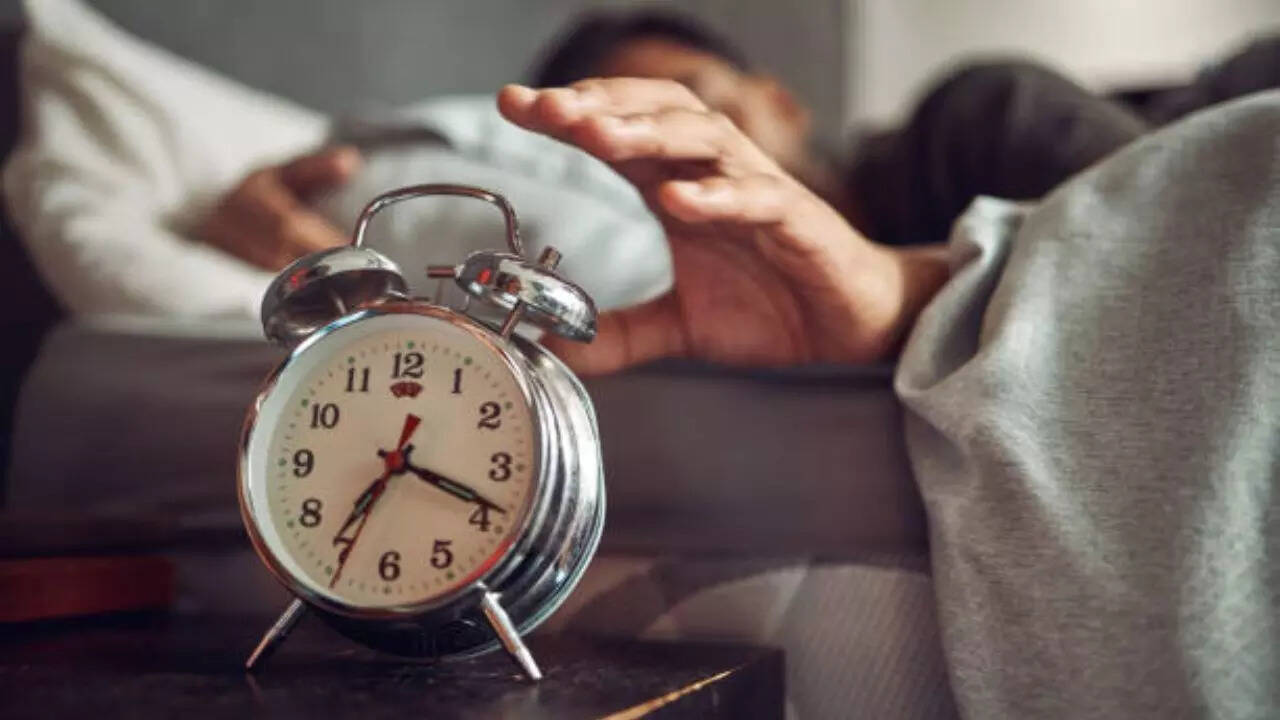
Most people set multiple alarms on their clocks, watches, or phones every morning, thinking it may give them a headstart for the day. However, according to experts, this habit may be unwittingly wreaking havoc on your health. Neuropsychologists say snoozing alarms every five minutes before finally getting up from the bed could be the reason why you may feel physically drained or emotionally on edge.
According to doctors, while deep sleepers may attempt to make sure they wake up in time or those seeking a few extra moments of slumber would feel genius finally getting on to their day, these frequent disruptions during the final stretch of sleep could be harmful to both physical and mental health. Why is alarm snoozing harmful to your health? Related News | Why Is Setting Multiple Alarms In The Morning Bad For Your Health?This Drink Can Make You Sleepless At Night, And It's NOT CoffeeDoctors say when your sleep is ending, the Rapid Eye Movement or REM, is still set in, which acts as your nocturnal psychologist. Mostly concentrated in the second half of the night, it helps you process emotions and daily experiences.

And so, missing out on even a few minutes of sleep means not only losing a substantial chunk of good rest but also forfeiting a significant amount of REM sleep, which is critical for maintaining emotional balance. REM sleep is a phase when your eyes move rapidly while you are asleep. It is also a time when you dream vividly, helping increase your brain activity and regulate breathing.
Waking to multiple alarms, therefore, disrupts your REM cycle frequently, leading to sleep inertia, increased drowsiness, fatigue, and mood swings, and it also raises your cortisol levels. Every time the alarm goes off, your body would go into a "fight or flight" response—considered extremely stressful. Related News | 10 Simple Solutions to Waking Up in the Morning with More EnergySleep specialists say disturbance in REM sleep also causes an imbalance in your appetite hormones – making you prone to: Weight gain Poor and interrupted sleep leads to increased BMI because of daytime sleepiness and poor productivity.
Lack of energy and sleepiness or fatigue are also combated by caffeine and sugar, leading to weight gain and less exercise. Insomnia Poor sleep habits also lead to insomnia, which in the long run causes a higher risk of health issues like high blood pressure, type 2 diabetes, obesity, and depression. Stress Studies say those who experience unregulated and interrupted sleep, less than eight hours at stretch report higher stress levels.
Ways to get uninterrupted, peaceful sleep Doctors say having only one alarm is ideal, and while it can be a challenge to wake up, you may try several other ways, which include: Experiment with different types of alarm clocks – like those using light or one that requires you to get out of bed to turn it off. Wake up and go to bed at roughly the same time every day, which will form a habit for your body to get up early. Stop taking naps during the daytime.
Do breathing exercises to regulate your breath so that you may not snore, which can interrupt your nighttime sleep.Adjust your bedtime every few days by thirty minutes, or once a week by an hour if you don't want to shift your biological clock. Avoid bright lighting and restrict screen time to no more than four hours before bed.
.















